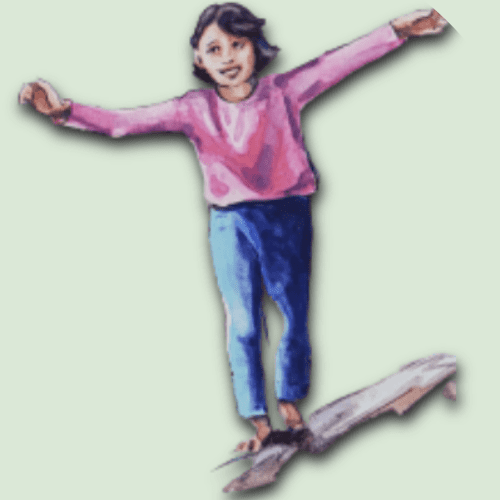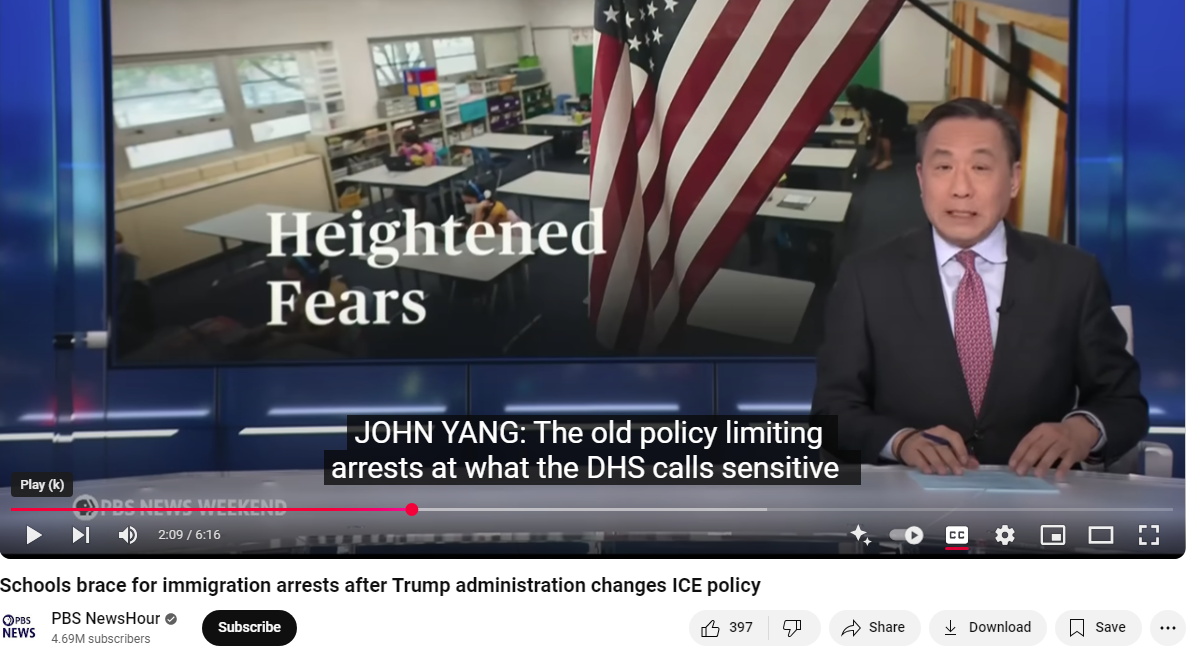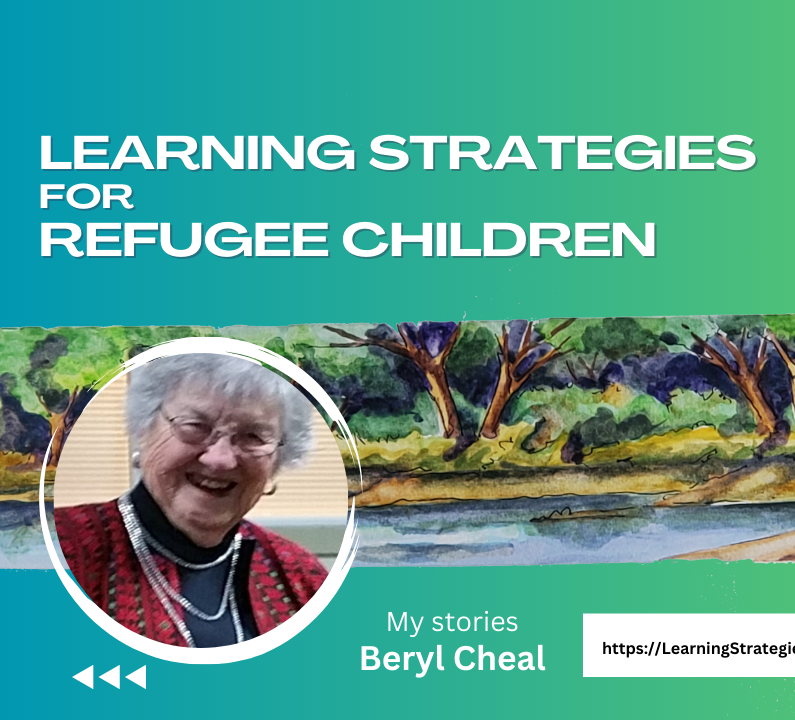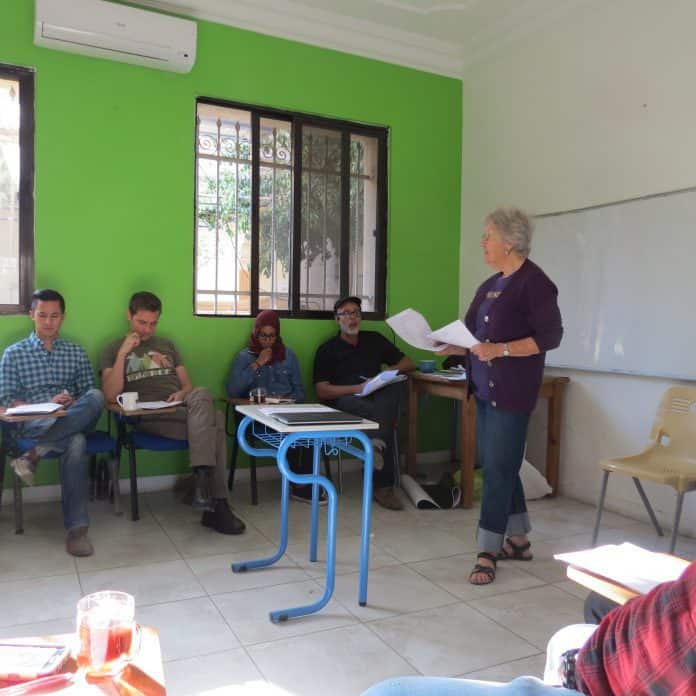School violence and tragedies and how to help our children. Facing consistent information about school shootings, natural disasters, or acts of terrorism can have a profound impact on children, causing fear, anxiety, and trauma. As adults, it is our responsibility to create a safe and supportive environment for children and it is not always easy. This article makes suggestions on what we can do and how we can help children cope by supporting them emotionally and helping them develop resilience and coping strategies.
Special Comments for Child Caregivers (Including Parents & Guardians)
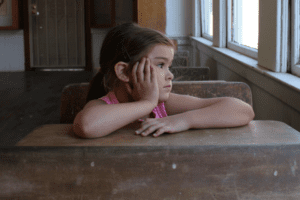 Your child needs you. Children of refugee families who may experience school violence are especially vulnerable. But also, those who may be suffering from secondary trauma are at risk for all have experienced a great number of traumatic events and are likely to show signs of distress. Other children may exhibit the same stress related behaviors. You should know that it is normal for them to display a wide range of physical or emotional reactions after all they have been through. It is often hard to understand what has happened. Some have mixed-up views of the situation, while others have a clearer understanding. But all know major changes have happened in their lives. How you help your child through this very difficult time may have a lasting effect for them. Of course, they may experience the same strong feelings you have about all that has happened. Remember that children even from the same family may react differently.
Your child needs you. Children of refugee families who may experience school violence are especially vulnerable. But also, those who may be suffering from secondary trauma are at risk for all have experienced a great number of traumatic events and are likely to show signs of distress. Other children may exhibit the same stress related behaviors. You should know that it is normal for them to display a wide range of physical or emotional reactions after all they have been through. It is often hard to understand what has happened. Some have mixed-up views of the situation, while others have a clearer understanding. But all know major changes have happened in their lives. How you help your child through this very difficult time may have a lasting effect for them. Of course, they may experience the same strong feelings you have about all that has happened. Remember that children even from the same family may react differently.
Your child may:
- worry about what will happen to them.
- show they are angry by hitting, kicking, throwing things.
- be afraid to be alone, be afraid it will happen again, be afraid of loud noises.
- be afraid to let you out of their sight.
- behave like they did when they were younger, suck their thumbs, wet the bed, want a bottle.
- have symptoms of being sick, such as stomachache, nausea, headache.
- become quiet and shy.
- seems normal for a while, and then months later, show signs of stress.
Here are some things that you can do to help your child:
- Talk with them about the experience if they ask or seem to want to talk about it. Be patient. Give simple information about the situation. Be sure to talk
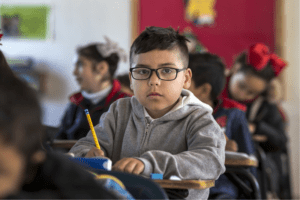 about it at their developmental level. Share with them only the information they can understand. Later you can explain more if they want it.
about it at their developmental level. Share with them only the information they can understand. Later you can explain more if they want it. - Listen to what your children say with your ears and your heart. Share what you heard. “It sounds like you are afraid that……………..” or “You wonder if this will happen again.”
- Reassure your children. “We are together. We are safe now, but I was scared, too. Let’s plan ways that we can continue to be safe.” (Talk about the security plans your school or organization has developed.)
- Hold and cuddle your child. Gentle touch gives comfort and security.
- Allow your children to grieve.
- Spend extra time with your children, such as reading a book, playing a game. Remind them that you are close by. Sometimes you may not need to say anything – just be there together.
- Provide meaningful play materials and experiences, when possible, which help children work through their feelings, such as drawing, painting, a tub of warm water, sand, a ball or bean bag, blocks, puzzles, dolls or puppets.
- Ask for help if you need it from a religious or cultural leader, doctor, or school personnel.
- Look for helpers in your community, like a religious or cultural group or others. Talking with people who understand your situation can give hope and a feeling of stability in your new community.
[The above information is adapted with permission from Children’s Disaster Services www.childrensdisasterservices.org]
Part 2: Special Comments for Educators Helping Children through School Tragedies
The horrific tragedies that have been happening in our schools have far reaching effects on everyone touched by the events, but especially children. It is hard for adults to understand why such a tragedy occurred but it is even more difficult for children to make sense out of it. They haven’t lived long enough to realize that what they have just experienced or heard about is not a usual event. Younger children may feel they have caused the tragedies because of something they have or have not done. They may combine reality and magical thinking into a perspective that may have little to do with what really happened. School-age children may keep to themselves after an incident not because they may not know how to express their feelings, but because they don’t want to add to the burden of their obviously distressed parents or teachers. Teenagers often have a grown-up grasp of reality, but their reactions and behaviors can swing wildly from that of a mature adult to that of a young child.
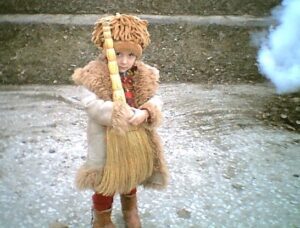 Responses that children make after having experienced tragedy vary greatly but they are normal responses to abnormal circumstances. These occur automatically – without plan or intent. Whereas children react differently depending on their age, support from their families, health and other life experiences, the mental health community tells us that trauma frequently results in feelings of fear, loss of self-confidence, life being out of control, lack of empathy, loss of faith in the future, a break in relationships with peers as well as adults, confusion and difficulty in regulating emotions. It is very important for people who work with young children to develop strategies to resolve these issues for those feelings can greatly inhibit learning.
Responses that children make after having experienced tragedy vary greatly but they are normal responses to abnormal circumstances. These occur automatically – without plan or intent. Whereas children react differently depending on their age, support from their families, health and other life experiences, the mental health community tells us that trauma frequently results in feelings of fear, loss of self-confidence, life being out of control, lack of empathy, loss of faith in the future, a break in relationships with peers as well as adults, confusion and difficulty in regulating emotions. It is very important for people who work with young children to develop strategies to resolve these issues for those feelings can greatly inhibit learning.
Children’s responses can be confusing and frustrating to those who work with them. Children who have been competent, confident learners may now seem forgetful and confused. Others who had been shy and retiring may now show aggressive behaviors, striking out at the slightest indication of disagreement. Formerly attentive learners may have difficulty paying attention or processing the information given. They may have difficulty remembering what the teacher said or be confused on how to proceed with the assignment or how to complete the required work. They may even forget where to put their name on the assignment when they are ready to turn it in. Fearful children may be jumpy or fidgety or have trouble staying at their tasks. They may isolate themselves and not be responsive even to former friends.
The adults, who themselves may be suffering in response to the tragedies, will need extra patience working with their children. They may need to explain directions or assignments more frequently, more slowly using fewer and simpler instructions at one time. They may need to listen differently to their students – listening without judging as the children are able to talk about the event. Professionals differ on how much to say to younger children about tragedies but if asked it is important for them to be able to respond simply, and matter-of-factly, according to the age and development of the child. It is OK to say “I don’t know why it happened. We are all trying to figure that out.” The adults will need to be organized in class and in their class presentations, using the same terms and the same words frequently so that if a student does not understand a concept the first time they may catch on after several repetitions. A predictable daily schedule is important. Those working with young children will also want to make sure class rules and expectations are well known, consistent and fair.
Yes, working with children to help them understand, and remember classroom requirements, behaviors and expectations is important but equally important is continuing to help children develop academic skills. The Massachusetts Advocates for Children have written a book Helping Traumatized Children Learn in which they describe the importance of both psychosocial as well as academic skill development. They contend that both are keys to children’s healing.
Developing lessons in relation to the frequent responses of children after a traumatic event is an excellent way to use academics in recovery. For children who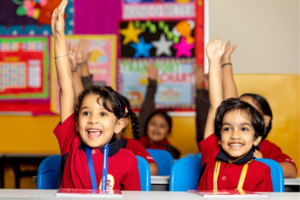 may feel life is out of control the person working with the child might develop lessons about phenomena in nature that are predictable. Younger children will enjoy talking and studying about the sun – how it came up this morning, will go down tonight, will come up tomorrow morning, go down tomorrow night – no matter what else happens. We can always count on the sun coming up and going down.
may feel life is out of control the person working with the child might develop lessons about phenomena in nature that are predictable. Younger children will enjoy talking and studying about the sun – how it came up this morning, will go down tonight, will come up tomorrow morning, go down tomorrow night – no matter what else happens. We can always count on the sun coming up and going down.
Both older and younger children will enjoy discussing and growing plants. If a seed is planted and receives appropriate care and attention, a plant will grow. And a child can count on that. It is another indication of the order and automatic rhythm of nature that a child can anticipate. Older students can develop projects on topics such as: the seasons, rotation of the earth, healthy development of a child – and so many other subjects. Working together on projects requires participation from all students – even those who separate themselves from former friends and colleagues. This is a cooperative venture and has the potential of reestablishing bonds that had been broken.
Not only does this kind of study give children new information but any reports on findings that are written or created orally gives students opportunities to organize their thoughts, use correct language, punctuate sentences appropriately – all academic skill building. Those working with the kids can develop similar focused lessons for each of the normal responses to traumatic events, as described above.
Don’t forget to take care of yourself. If you are in good health you will be able to work with the children in a more relaxed, creative way.
To get a PDF copy of Helping Traumatized Children Learn go to:
https://traumasensitiveschools.org/wp-content/uploads/2013/06/Helping-Traumatized-Children-Learn.pdf
As concerned adults we must help our children regain their lives. As people who work with young children, continue building those solid relationships and academic skills that can enhance and support our students as they develop and prepare to lead their school, their community, their country and our world.
Part 3: How We Use Words Makes a Difference
The words we use and how we use them make a huge difference in our communications with children and the trust they redevelop for us. Whereas refugee children (and others who have experienced trauma) get their cues more from actions than words it makes it even more important to use the few words children hear be affirming, caring, understanding, non-judgmental. Here are some ideas of words to use that show our concern for our children.
Things to say – Words to use:
- Yours are normal reactions to violence even if you only hear about it.
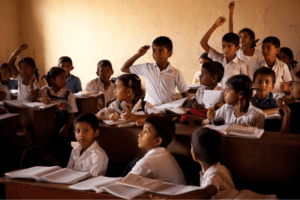
- It’s understandable that you feel this way.
- It was frightening just to hear about what happened at that school.
- It wasn’t your fault. You did the best you could. (If the child experienced the violence.)
- Things may never be the same, but they will get better, and you will feel better.
- It’s OK to cry.
- Feelings are OK.
- I will take care of you here at school. Let’s think of ways that we can be even safer while we are here.
It is not useful to say such things as:
- It could have been worse.
- Don’t cry. It wasn’t that bad!
- It’s best if you just stay busy.
- Time will make everything OK.
- I know just how you feel.
- Don’t think about it.
- Just forget it.
- Stop crying! Big boys/girls don’t cry!
- You are a big boy/a big girl, stop acting like that.
Remember that trauma is an experience, not a disease. It’s a person’s reaction to something that happened. Our job is to help children find ways to move the recollections of those experiences into their memory bank to rest there like all other life memories. Yes, it happened, or those events happened, but we work with children so that those memories no longer hold the weight of the fear, the feelings of helplessness, or the crushing thoughts of lack of self-worth. We can help children find happiness and joy in being part of their communities, with friendships and skills that sustain them as they continue their life’s journey.
Beryl Cheal
